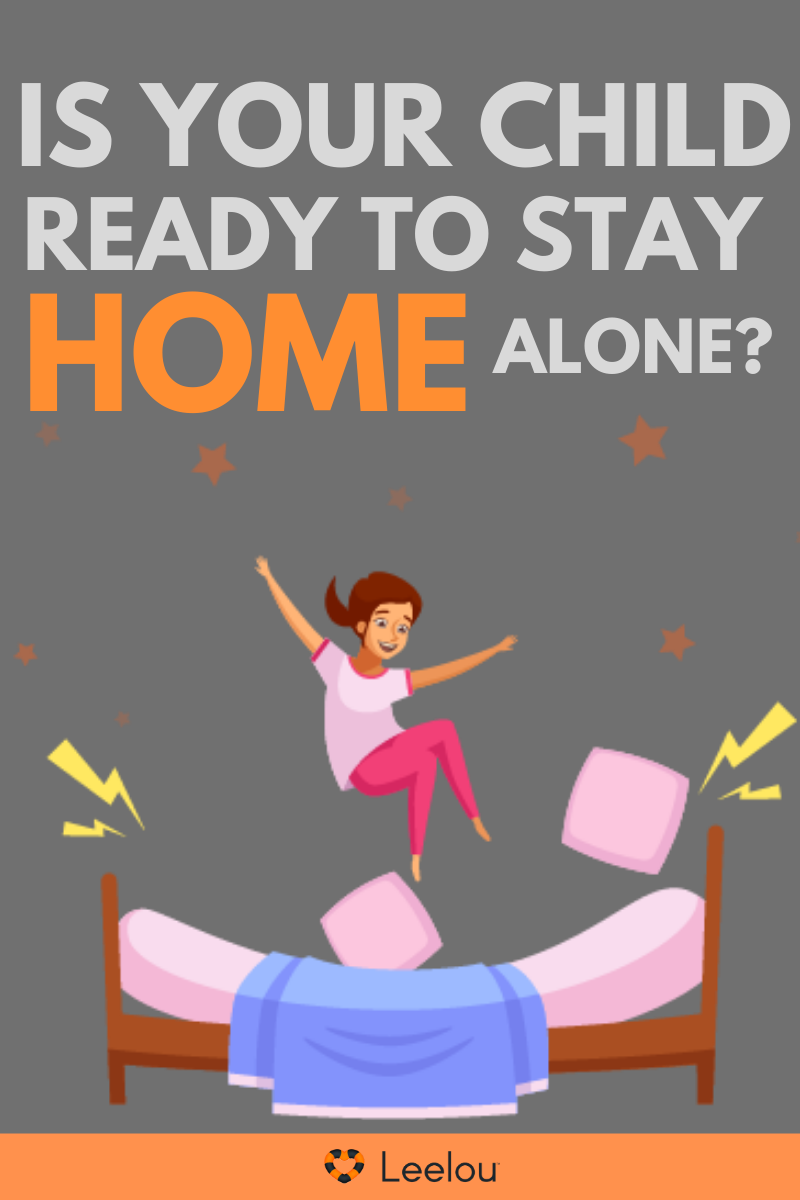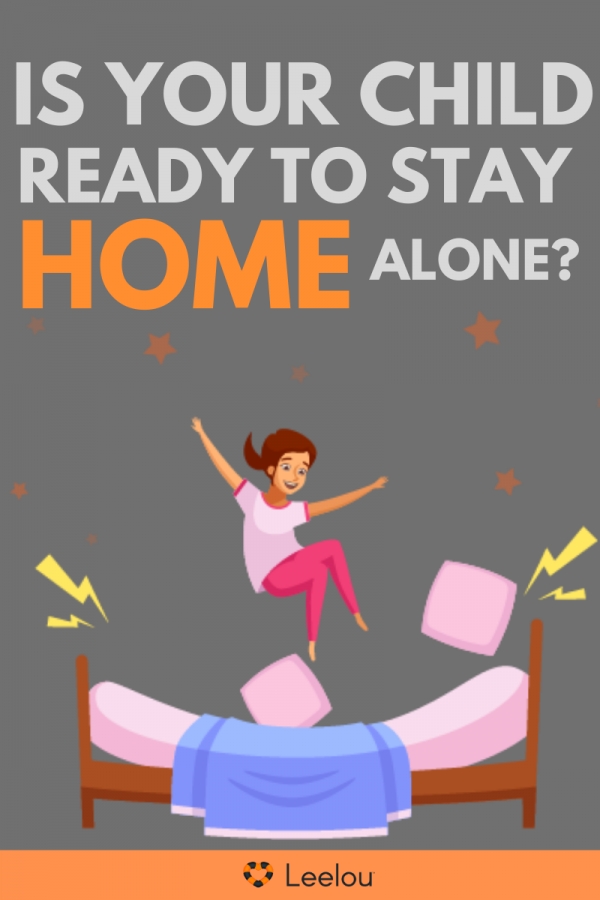
On school days, one in three adolescents comes home to a house with no adult present. Police departments have an expression for the hours between 2 P.M. and 8 P.M.: “crime time.” More than half of all youthful law violations are crammed into those six hours.
Before you do, there are several factors to take into account. For instance, in the neighbourhood generally a safe one? Are there neighbors around during the day who could lend a hand in an emergency? The most crucial question is whether or not your son or daughter is ready to handle this major responsibility.
Leaving kids home alone for the first time is a big step — for them and for you! Even if kids aren't planning to babysit, consider enrolling them in a babysitting class. The skills taught there can be very useful for kids new to time alone at home. Here are some other ways you can prepare your child for success:
- Discuss possible situations. If someone comes to the door what is the child to do? If the phone rings are your kid allowed to answer? How will they respond if someone asks to speak to the parent? One good response: "She's busy right now. Can I take a message?"
- Review basic kitchen safety. Make sure your child knows how to use kitchen appliances and tools and discuss what they are allowed to make in the kitchen. Only cold snacks? Can they use the microwave?
- Establish emergency preparedness. Does your child know what to do in case of smoke or fire? What should they do in a severe storm? Do they know basic first aid? Post emergency phone numbers and contact information so your child has it handy just in case. Discuss whom to contact if parents are unreachable.
- Create a list of "dos and "don'ts." Don’t play with matches or lighters. Don’t let anyone in the house. Don’t leave the house, except for an emergency situation. Do call and check-in when you get home from school. Do work on homework and chores.
- Try role-playing. Act out different scenarios that may arise. Pretend that your child needs to reach you — what will they do? How would they call 911? What would they do in case of a fire? Pretend the phone rings — how will they answer? By walking through different situations kids will be better prepared if the unexpected happens.
- Start slow. Begin by leaving your child for 15 to 30 minutes at a time. Then, slowly increase the time you're away. Talk about any questions or problems that came up in your absence. Ask your child how they felt when you weren't at home.
Staying home alone is a major milestone for both kids and their parents. Some states don't have a minimum age that you can legally leave your child home alone. The decision is left up to parents.
Make Sure Your Child Is Emotionally Ready
Staying home alone sounds very exciting to some children. Then they're left alone and the four walls with only them inside become a very scary place.
Make sure your child is emotionally ready to stay home alone. Can she emotionally handle the isolation of being the only one in the house? If she's too young, being alone can terrify her.
Ask Yourself if Your Child Is Physically Ready
Does your child know how to dial 911? Can she follow the family's fire safety plan if she needs to evacuate the house? Is she prepared for a life or death emergency?
Ask yourself if your child is physically ready to stay home alone before driving off without her. She may insist she's ready but that may all change when she sees your car backing out of the driveway and she suddenly realizes she's all alone in the house.
Make Sure You're Ready
You're part of this equation too. And while the idea of being able to run some errands alone may be appealing, the reality of "what if?" questions will soon make you wonder if you should ever let her stay home alone.
Make sure you're ready for your child to stay home alone. Don't give in just because it's what she wants. You don't want to spend all of your time out of the house speed dialing your child every five minutes to make sure she's okay.
While you can't possibly be ready for every situation, you can prepare you and your child for that big day when she starts staying home alone. Here's how:
Devise a Plan
Don't leave your child home alone without devising a plan first. Your child should know what to do if someone comes to the door and what to do in case of an emergency. Also, be clear about what's allowed and what's off-limits too.
You don't want to come home to find out your child prepared mac and cheese on the stove and invited four of her closest friends over too. Make your rules known, even putting them in writing.
Have a Neighbor Check In
You want to trust that all will go well when you leave your child home alone. But there's nothing wrong with having a neighbor you trust to check-in. It's even a smart move to make.
Give your neighbor plenty of notice so she can be sure to check in on your child at a set time while you're gone. Let your child know the neighbor will be checking in too. As an added layer of security, let your neighbor know your child won't be answering the door but will come to the window and wave. That way, your neighbor can see your child is okay and talk to her without encouraging your child to open the door. Be sure your neighbor has your phone number so she can call you in case of an emergency.
Start with Quick Trial Runs
Your to-do list is filled with errands to run all over town. This may take all day.
It's tempting to try to sneak in one more errand real quick just to get it done. But it's better to start with quick trial runs as your child gets used to being home alone. At first, take a quick 20-minute drive to the dry cleaners and come right back home. You can increase the time with every errand you need to run so you're not leaving your child home alone for two hours the first time you head out.
Be Willing to Come Home at Any Time
You receive a call from your child. It may be broad daylight but she's suddenly scared of being home alone.
Being home alone is a big deal. She may have been fine with it the first 10 times but for some unexplainable reason now she's crying and wants you to come home. Be willing to drop what you're doing to come home at any time. She will be ready to be home alone again someday but she needs the reassurance that you'll be there should she change her mind.
Set Check-In Times
Establish check-in times with your child. With today's technology, it's easier than ever to stay in touch with your kids.
The frequency of check-in times is completely up to you. Some parents want to check-ins every 30 minutes. Others may stretch it out to every hour or more. Ask her to call, text or even send a picture to let you know she's all right. You set your own rules and make sure she follows them to give both of you peace of mind that you're a few pushes of a button away.
Use High-Tech CCTV
You may not want to feel like a spy but today's world makes it necessary to keep closer tabs on your children. High-tech CCTVs allows you to pop into your home without being anywhere near it.
Look for CCTVs that allow you to connect to your home remotely using apps. You can even ask your child to be in place at a certain time so you can see her standing safely in your living room.
Wait to Leave Younger Siblings at Home Too
Staying home alone is a major life moment for a child. The transition to being all by herself is exciting, scary, fun, nerve-wracking and full of unknowns.
That transition is hard enough. Don't rush it by adding younger siblings to the mix. Your child may be an amazing helper with your other children but let her fly solo at home for a while before adding babysitting duties. She may be ready for the responsibilities associated with being home alone but the stress of taking care of younger children who want their mommy and will have many needs while you're away may be too much for all of your children to bear. You want her to grow into her independence and enjoy her home alone time without suffering a setback from not being able to properly care for her siblings.
Teach Them to Use Their Smartphone for Personal Safety
If your child already owns his/her own smartphone, install an app called Leelou. This will be their tool whenever they are in dangerous situations. All you have to do is set-up 5 guardians that will be alerted when something bad happens. You'll get to see their battery percentage, location and even have audio recorded of their surroundings. The good thing about this app, it's FREE!


